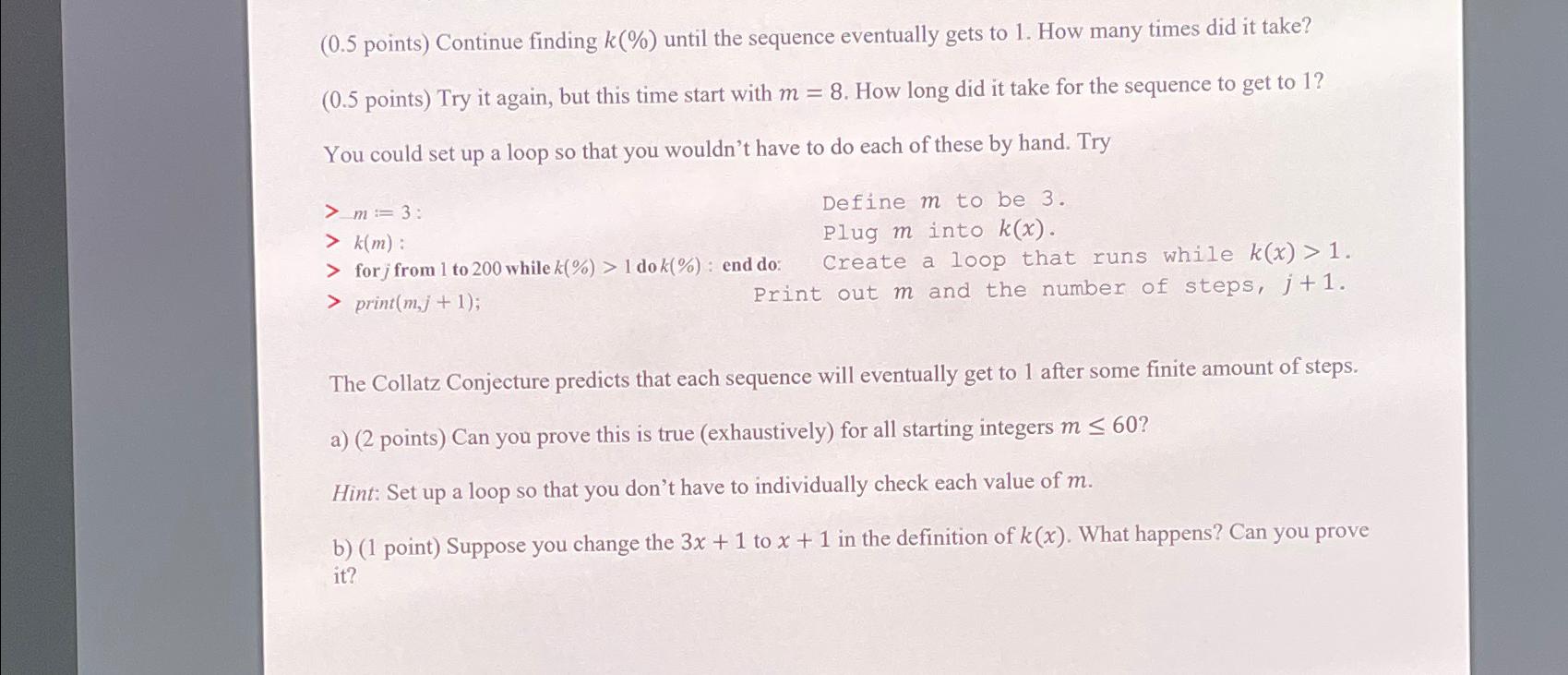Answered step by step
Verified Expert Solution
Question
1 Approved Answer
points ) Continue finding k ( % ) until the sequence eventually gets to 1 . How many times did it take? ( 0 .
points Continue finding until the sequence eventually gets to How many times did it take?
points Try it again, but this time start with How long did it take for the sequence to get to
You could set up a loop so that you wouldn't have to do each of these by hand. Try
::
:
for from while : end :
Define to be
Plug into
Create a loop that runs while
Print out and the number of steps,
The Collatz Conjecture predicts that each sequence will eventually get to after some finite amount of steps.
a points Can you prove this is true exhaustively for all starting integers
Hint: Set up a loop so that you don't have to individually check each value of
b point Suppose you change the to in the definition of What happens? Can you prove it

Step by Step Solution
There are 3 Steps involved in it
Step: 1

Get Instant Access to Expert-Tailored Solutions
See step-by-step solutions with expert insights and AI powered tools for academic success
Step: 2

Step: 3

Ace Your Homework with AI
Get the answers you need in no time with our AI-driven, step-by-step assistance
Get Started


